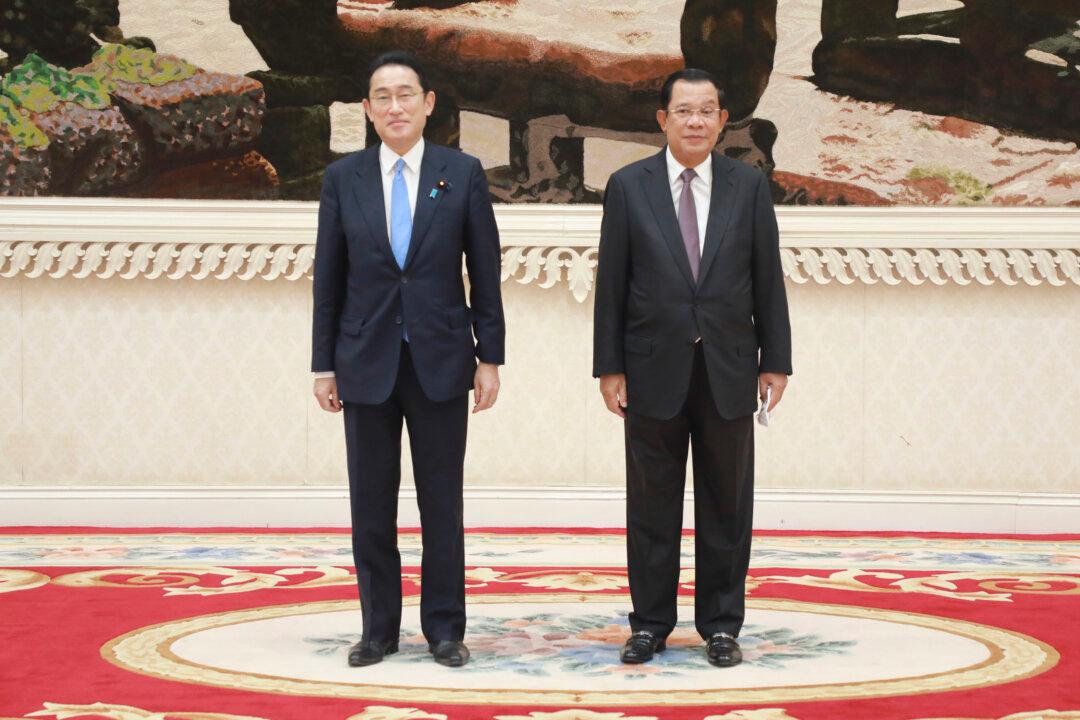PHNOM PENH, Cambodia—Japanese Prime Minister Fumio Kishida visited Cambodia for talks with the country’s longtime leader, Hun Sen, on Sunday to deepen relations and promote calls for the rule of law in one of the Southeast Asia’s closest partners of both China and Japan.
Kishida and Hun Sen in a joint statement condemned Russia’s aggression in Ukraine and called for “an immediate stop of the use of force and the withdrawal of the military forces from the territory of Ukraine.“ They stressed ”neither threat nor use of all kind of weapons of mass destruction can ever be accepted in any occasion.”





